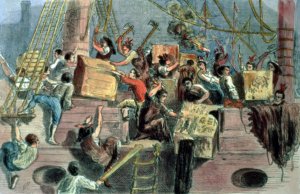Some treat inequality as an inevitable or intractable feature of the global economy, or at least impossible to alter at acceptable cost (Cowen 2013). But inequality may be subject to political circumstances, and public policies including progressive taxes might reduce it without adversely affecting economic growth (Diamond and Saez 2011, Piketty 2014). It may be that Americans are just unwilling to support policies that would reduce inequality. Progressive taxation and other policies may reduce inequality. But policy reflects public preferences (Stimson, Mackuen, and Erikson 2002), and the American people just hate taxes. Martin Gilens (2012) effectively demonstrated that policy makers favor the wealthy over the majority when opinions diverge. Yet he accepted that the Bush tax cuts in the early 2000s reflected broad consensus opinion. Public opposition to taxes is seen as so powerful that even observers seeking programs to promote economic equality often abandon progressive taxes as a remedy (Kenworthy 2013).
Working Paper
The New York Times and American Tax Policy: Representing Citizens or Echoing Elites?
Conference paper By
Conference paper By
Download- Chomsky The-New-York-Times-and-American-Tax-Policy (pdf, 318.26 KB)

